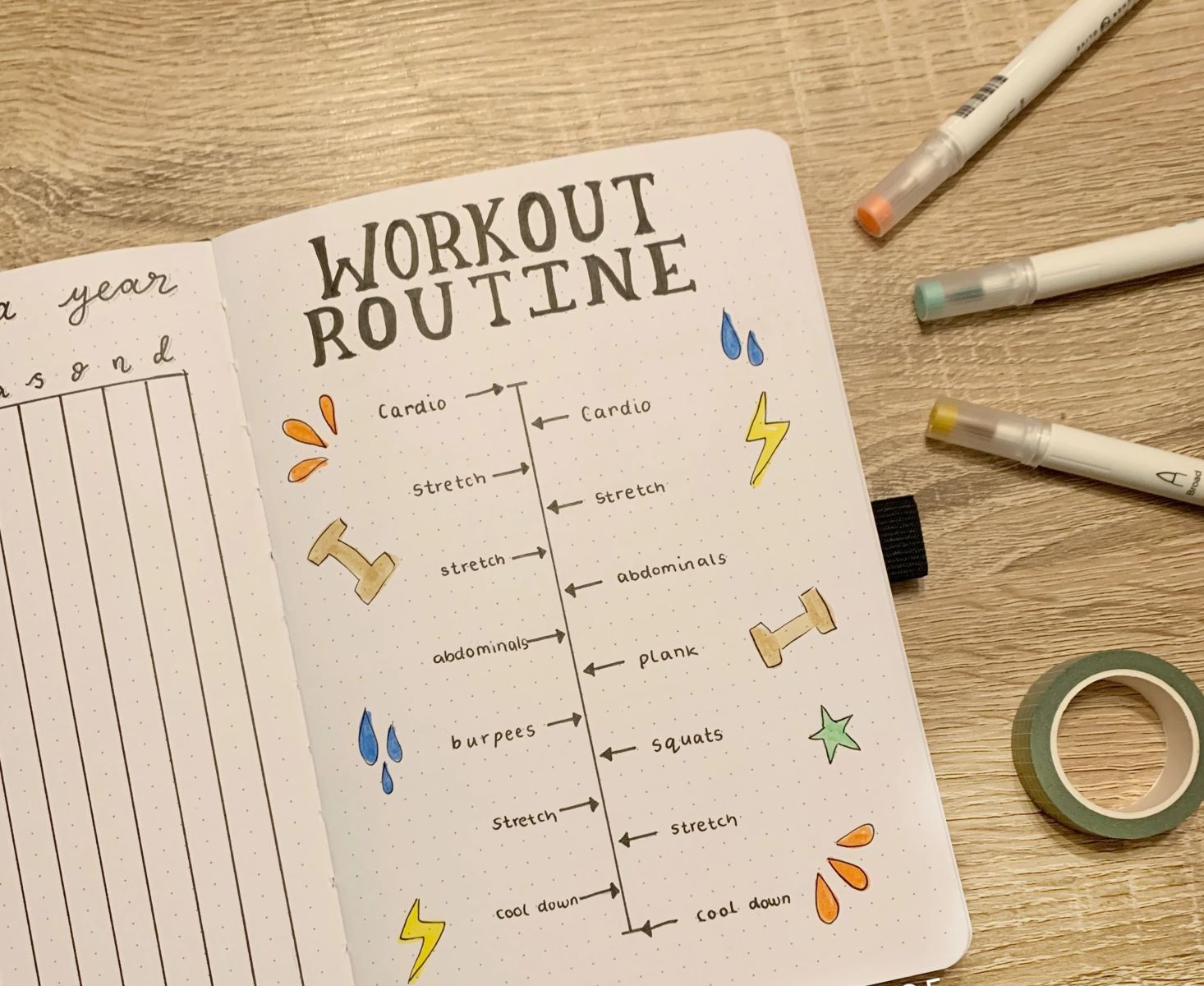Home>Misc>Featured>What Is The Best Time To Exercise To Lose Weight


Featured
What Is The Best Time To Exercise To Lose Weight
Modified: January 2, 2024
Discover the optimal time to exercise for weight loss with our featured article. Find out when to maximize your fitness routine to achieve your weight loss goals.
Introduction
When it comes to weight loss, exercise plays a crucial role in achieving our goals. But have you ever wondered if there is an optimal time to exercise for maximum weight loss results? The truth is, the best time to exercise can vary from person to person, depending on individual preferences and schedules.
Some people prefer to jumpstart their day with a morning workout, while others find that afternoon or evening exercise fits better into their routine. Ultimately, the best time to exercise for weight loss is the time that you can commit to consistently and enjoyably.
In this article, we’ll explore the benefits of exercising at different times of the day and help you determine which time may be the most suitable for your weight loss journey. Whether you’re an early bird, a night owl, or somewhere in between, understanding the options will help you make an informed decision.
Before we delve into the specifics, it’s important to note that while exercise is undoubtedly beneficial for weight loss, it is just one piece of the puzzle. A healthy diet, proper sleep, and overall lifestyle choices also contribute significantly to achieving and maintaining weight loss goals.
Now, let’s explore the pros and cons of exercising during different times of the day to help you decide which works best for you.
Morning Exercise for Weight Loss
Starting your day with a workout has numerous benefits for weight loss. Here are some reasons why morning exercise might be the ideal choice for you:
- Boosts metabolism: Exercising in the morning kickstarts your metabolism, helping you burn more calories throughout the day. This can contribute to greater weight loss over time.
- Increases energy levels: A morning workout can provide an energy boost that lasts throughout the day. It can help you feel more alert, focused, and productive, setting a positive tone for your day ahead.
- Improves mood: Exercise releases endorphins, which are known as “feel-good” hormones. By exercising in the morning, you can start your day on a positive note, reducing stress and enhancing your overall mood.
- Makes healthier choices: When you prioritize exercise in the morning, you’re more likely to make healthier choices throughout the day. Research shows that people who exercise in the morning tend to make healthier food choices and are less likely to indulge in unhealthy snacks or overeat.
- Consistency: By exercising in the morning, you eliminate the risk of skipping your workout due to unforeseen obstacles or distractions that may arise later in the day. Establishing a morning exercise routine promotes consistency and helps you stay on track with your weight loss goals.
However, morning exercise may not be suitable for everyone. Some individuals may find it challenging to wake up early or may experience low energy levels in the morning. It’s important to listen to your body and choose a workout time that aligns with your natural energy patterns and preferences.
Ultimately, if you’re a morning person or can develop the habit of getting up early, morning exercise can be a fantastic way to jumpstart your metabolism and set the tone for a healthy and active day.
Afternoon Exercise for Weight Loss
For those who find it challenging to wake up early or prefer a midday energy boost, afternoon exercise can be a great option for weight loss. Here are some advantages of choosing to exercise in the afternoon:
- Increased muscle strength: Research suggests that our muscle strength and flexibility are at their peak in the afternoon. This can make afternoon workouts particularly effective for building muscle and improving overall strength.
- Enhanced endurance: As our body temperature naturally rises throughout the day, so does our physical performance. This means that in the afternoon, our body is more prepared for intense workouts, enabling us to push ourselves further and improve endurance.
- Reduced injury risk: With increased muscle flexibility and body temperature, the risk of injury during afternoon exercise is generally lower compared to early morning workouts. This can be especially beneficial for those engaging in high-impact activities or intense training.
- Stress relief: Taking a break from work or daily responsibilities by exercising in the afternoon can be a fantastic way to reduce stress and improve mental well-being. It can help clear your mind, boost mood, and increase productivity for the rest of the day.
- Social opportunities: Afternoon exercise can provide more opportunities for social engagement, such as joining group classes or exercising with friends. This social interaction can add an element of fun and motivation to your workouts, ultimately contributing to better weight loss outcomes.
One thing to keep in mind with afternoon exercise is to avoid exercising too close to bedtime, as it may interfere with your sleep. Aim to complete your workout at least a couple of hours before your bedtime to allow your body to wind down and prepare for restful sleep.
If you’re someone who feels more energized and motivated during the afternoon, incorporating physical activity into your midday routine can be an effective way to maximize weight loss results.
Evening Exercise for Weight Loss
For individuals who struggle with morning or afternoon workouts, evening exercise can be a viable option for weight loss. Here are some benefits of choosing to exercise in the evening:
- Stress relief: Evening exercise can be an excellent way to unwind and relieve stress accumulated throughout the day. It provides an opportunity to let go of work-related pressures and focus on taking care of your physical and mental well-being.
- Improved sleep: Engaging in physical activity in the evening can help promote better sleep quality. Exercise raises your body temperature, and as it gradually drops post-workout, it can aid in falling asleep faster and enjoying more restful sleep.
- Burning excess calories: Evening workouts can help burn calories from the meals consumed earlier in the day. Additionally, depending on the intensity and duration of your workout, you may continue to burn calories during the post-exercise recovery period, leading to greater weight loss.
- Increased muscle recovery: By exercising in the evening, you give your muscles ample time to recover and repair during sleep. This can contribute to muscle growth and improved overall fitness over time.
- Flexibility and convenience: For those with busy schedules or commitments during the day, evening exercise offers flexibility and convenience. You can use this time to engage in physical activity without feeling rushed or pressured.
However, there are a few considerations when exercising in the evening. Intense workouts too close to bedtime may increase alertness and make it difficult for some individuals to fall asleep. It’s important to find the right balance and allow enough time for wind-down activities and relaxation before bedtime.
If you generally feel more energized and motivated in the evenings, incorporating exercise into your evening routine can be a beneficial choice for weight loss.
Factors to Consider for Choosing the Best Time to Exercise
While there are benefits to exercising in the morning, afternoon, or evening, the best time to exercise for weight loss ultimately depends on your individual circumstances and preferences. Here are some factors to consider when choosing the ideal time for your workouts:
- Energy levels: Pay attention to your energy levels throughout the day. If you’re naturally more energized and motivated in the morning, it might be the optimal time for your workouts. On the other hand, if you tend to have more energy in the afternoon or evening, consider scheduling your exercise sessions accordingly.
- Schedule and commitments: Take into account your daily schedule and commitments. If you have early morning meetings or other engagements that make it challenging to squeeze in a workout, evening exercise might be a better option. Similarly, if you have a consistent afternoon break or prefer a midday energy boost, afternoon workouts could work well for you.
- Sleep patterns: Consider how exercise timing impacts your sleep quality. Some individuals find that exercising too close to bedtime can interfere with their ability to fall asleep, while others may benefit from the improved sleep quality associated with evening workouts. Find a balance that works best for you and allows for restful sleep.
- Personal preferences: Listen to your body and choose a time that you enjoy and can commit to consistently. If you dread early mornings but love the feeling of an evening workout, prioritize what brings you joy and makes exercise a sustainable and enjoyable part of your routine.
- Workout type: Consider the type of exercise you enjoy and its suitability for different times of the day. For example, high-intensity activities might be better suited for morning or afternoon workouts when you have more energy. On the other hand, gentle yoga or stretching sessions can be a great way to wind down in the evening.
It’s important to remember that consistency is key in achieving weight loss goals. Regardless of the time you choose, establishing a regular exercise routine that you can commit to will yield the best results over time.
Experiment with different workout times to find what works best for you. Pay attention to how your body feels, your energy levels, and the overall enjoyment and effectiveness of your workouts. By aligning your exercise schedule with your individual needs and preferences, you’ll be more likely to stick with it and achieve success in your weight loss journey.
Conclusion
When it comes to choosing the best time to exercise for weight loss, there is no one-size-fits-all answer. The optimal time can vary from person to person based on individual preferences, energy levels, and daily schedules.
Morning exercise can boost your metabolism, increase energy levels, and set a positive tone for the day. Afternoon exercise can enhance muscle strength, endurance, and provide a midday energy boost. Evening exercise can help relieve stress, improve sleep, and burn calories from earlier meals.
Factors such as energy levels, schedule, sleep patterns, personal preferences, and the type of workout should all be considered when determining the ideal exercise time. It’s essential to listen to your body and choose a time that you find enjoyable and can commit to consistently.
Remember, achieving weight loss goals requires a holistic approach that includes not only exercise but also a healthy diet, proper sleep, and overall lifestyle choices. Consistency is key, so choosing a time that works best for you and being dedicated to your exercise routine will lead to long-term success.
Ultimately, the best time to exercise for weight loss is the time that you can commit to and enjoy. So find what works for you, make it a habit, and embrace the journey towards a healthier and fitter you.









